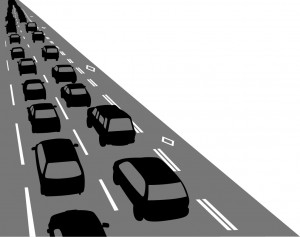Hits and Misses
 What Uber could teach Medicare: New Year’s Eve price is 6.25 times the normal price.
What Uber could teach Medicare: New Year’s Eve price is 6.25 times the normal price.
Pennsylvania will be the first state to have a work requirement for Medicaid.
Is diabetes a global epidemic?
Drug discovery is one of the most wasteful research activities on the planet (which explains why they charge $84,000 for a drug that stops Hepatitis C).


…naloxone rescues people who become unconscious from overdoses of heroin and other opiates.
As the article says, the drug has long been off-patient. Then why does the FDA create monopolies? This firm created an auto-injector that’s been approved. Why not allow competing firms to sell syringes?
Put another way, part of the reason medical expenditures are so high is because of ridiculous regulations that provide an exclusive license to administer a product that is already off-patent. Of course the inventors should have exclusive rights to their design; but not exclusive rights to the idea.
“Is diabetes a global epidemic?”
I would say so, but with more technology and medical advances, we are making great breakthroughs.
Wow, and here I thought diabetes was an epidemic here in the states because of our poor lifestyles. But China and India are massively struggling with it as well.
Ample supplies could be the reason. Diet also matters.
Consider that the article claims that there are more people in India and China with diabetes, but in America there is the largest proportion of “diabetes per capita”. We should expect that the number of people with this condition in India and China is greater but it has to do substantially by the differences in population. Comparing it in per capita basis, it will show that America still has the biggest issues with this disease.
The article also states that Indians are predisposed to develop diabetes. This is not true for many Americans, who develop their condition due to their lifestyle not their genetics.
Pennsylvania will be the first state to have a work requirement for Medicaid.
States should absolutely seek waivers and find ways to develop their own Medicaid programs and make them more efficient.
On Uber surge pricing…
“One of our users claimed never to have seen the notification, but when we go into our logs we see that he actually requested a trip, saw the notice and cancelled, and then opened and cancelled 3 more times over a 10 minute period before finally deciding to okay it. When he accepted that notice, an agreement to pay that driver for his services was made.”
Hah!
A person who lives near the Mexican border would do well go forgo Medicare, saving $1300+ in premiums per year, then seek care and drugs in Mexico with cash, likely paying less than the deductible and co-pay would be under Medicare.
Uber is changing the game when it comes to the fee for car service model. They use surge pricing to keep cars available and get customers based on their willingness to pay.
“The governor has told me and the rest of the negotiating team that it is very important to bring the issue of work-related criteria to resolution. If you take that away, it breaks the plan as a whole. The whole premise is to help individuals break a cycle of poverty.”
I could not agree with this more. More states should work on implementing a work requirement, or showing a requirement for Medicaid.
A similar model to how unemployment benefits work could be helpful. As long as your actively looking for work or our employed, then you remain eligible for Medicaid.
The idea of Medicaid is to help people in poverty with healthcare, so it is one less thing to worry about as they try to get out of poverty. Unfortunately, it instead provides incentives to stay in poverty to receive the benefit.
“She noted that drug overdoses had surpassed car accidents as the leading cause of death from injury in the United States; opioids alone killing 16,000 people a year.”
Why not reduce the amount of Opioid usage, rather than fast tracking a medicine in case of an overdose?
“It started with a post right here on Scientific American Blogs with the title “The Quest: $84,000 Miracle Cure Costs Less Than $150 to Make”.”
It may cost less than $150 to make, but research and development of that drug was much costlier.
Correct me if I am wrong, what is being implied with the post about Uber is that prices should increase when there is a high demand for a specific treatment in Medicare. Meaning that it is being suggested that the best way to fix the system is to increase prices so that only few people can afford it? I agree and support these surges with Uber (as there are some alternatives) but in healthcare, where there is no other choice, I oppose them.